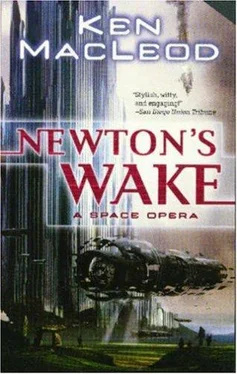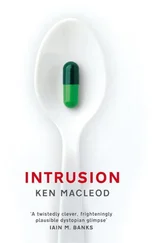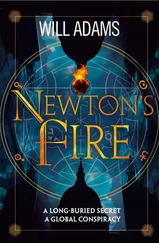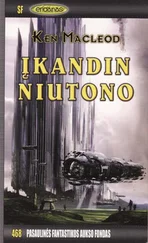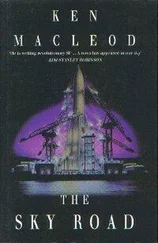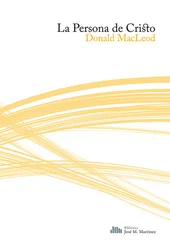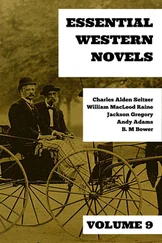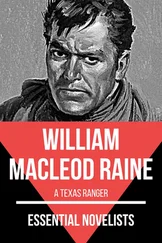After a few social niceties over a cup of coffee, Menard got to the point.
‘This is … a little difficult, Benjamin,’ he said. ‘I don’t usually ask my constituents in to see me. Normally, of course, it’s the other way round. As you know.’
‘I appreciate your help on many occasions past,’ said Ben-Ami, searching his memory for any relatives or offspring Menard might have with theatrical ambitions or pretensions, and finding none. ‘If there’s anything I can do for you …’
‘Not at all, nothing personal, nothing like that,’ said Menard. He glanced out of the window, and back. ‘Damn it, old chap, I hate doing this.’ He slapped his hands on his knees. ‘The fact is, it’s about your play.’
‘My play?’ For a moment, Ben-Ami thought it was his most recent play that was meant: The Reformer Reformed , a knockabout satire on Eurydicean politics that had closed on its third night. Had there been some careless allusion in it that had offended Menard?
‘The Returner play.’
‘Oh!’ Ben-Ami laughed, relieved. ‘Early days, Jean-Luc. Don’t like to talk about unfinished projects—bit of a professional superstition, I know, but there it is. I can tell you this much—’ He tapped his nose. ‘It’ll be controversial.’
‘Indeed.’ Menard frowned at him. ‘That’s the problem.’
‘I’m sorry.’ Ben-Ami shook his head. ‘What problem?’
‘It’s difficult to put this as delicately as I would wish,’ said Menard. ‘Let’s just say there are many people who would regard it as politically inopportune. In the present situation only, I assure you. When things settle down a little, then, to be sure, there would be no objection, but for now …’ He spread his hands.
Ben-Ami floundered. ‘I expected my political friends to question it. All sorts of rumours are flying around. You know what actors are like, can’t resist gossip or a good line—but I assure you, when you see it all in context—’
Menard threw up his hands. ‘Yes, yes. Patriotic, progressive, all that sort of thing. The business with the Returners might raise some eyebrows, but I’m confident you can carry that off. That isn’t the problem—or rather, it precisely is the problem. To stir up feelings, however well-intentioned, of what one might call the chauvinisme , the sense of Eurydicean—’
‘One moment,’ said Ben-Ami coldly. ‘You, my friend, a responsable politique , are telling me there are those who fear my play will be too patriotic?’
‘Yes,’ said Menard, sounding ashamed of himself. ‘Not myself, of course. Not even our party. I am merely the messenger, you understand. I’ve been asked by a very highly placed source to convey a—a word of advice. The Executive, and above all the Joint Chiefs, are very concerned about the delicacy of our relationship—a relationship of the highest importance to our security, perhaps even to our existence—with our new allies.’
‘Ah, I see !’ said Ben-Ami. ‘They’re worried about offending the Knights!’
‘Exactly,’ said Menard, beaming obvious delight that they were at last on the same wavelength.
‘Then,’ said Ben-Ami, standing up, ‘I’ll thank you to convey a message back to your friends in high places. Tell them they can take their word of advice and stick it up their arses.’
W
inter had once stood on the pier at South Queensferry, and noticed the three-metre height between high and low tide. He had guessed that the area of sea in front of him, between the Road Bridge and the Forth Bridge, was approximately a kilometre square. In that little area, that tiny fraction of the sea’s surface, three million tons of water had been raised in a few hours, airily lofted by the distant moon. He had been struck by what had then seemed deep thoughts about physics and gravity and tidal forces, of the sheer power in the great machine of the world.
Or maybe he hadn’t, and the memory had been provided for him by another machine, as a logical consequence of some surviving fragment of his experiences and beliefs, rather than from, say, a recorded snatch of reminiscence caught on late-night television.
Whatever. He remembered it now, looking across the city at the black ship that hung above the park like a cartoon weight marked one! million! tons! and poised for an impossible instant before it flattened whatever or whoever was under it.
‘Bugs you, doesn’t it?’ said Calder, evidently noticing the way Winter’s gaze gravitated to the thing. They were drinking mid-morning coffee in an open-air waterfront café where Ben-Ami had arranged to meet them.
‘It does,’ said Winter. ‘Like, what’s holding it up?’
‘Ask the Knights.’ Calder jerked his head, indicating several black-clad men drinking tea a few tables away.
‘I have,’ Winter said, leaning out of his partner’s sidestream smoke. ‘They asked me a few questions about my knowledge of physics, and politely suggested that I acquire some more before asking questions whose answers I couldn’t understand.’
‘Sound advice.’
‘On the other hand, maybe they don’t know either.’
Calder snorted. ‘There’s a lot of that about. You ask any of the locals how their system works, they look at you as if you’re stupid for even asking. They don’t even give you a handwave.’ He waved his arms about. ‘I mean, where’s our guided tour of utopia? That’s part of the package. It’s in the brochure. I checked.’
‘This isn’t utopia,’ said Winter. ‘It’s what we had back in Polarity, with the rations and incentives and all. It’s just got more sophisticated. More abstract. Lucinda got the guided tour. Couldn’t make head nor tail of it, she said.’
‘Still carrying that torch,’ Calder said.
‘Yes,’ said Winter. He felt a sudden surge of frustration, a tension from his groin to his throat via his solar plexus. ‘You know, I’m getting fed up with this place.’
Calder looked surprised and bothered. ‘Why?’
‘Oh, I don’t know. It’s because it’s like Polarity, I guess. I feel like we’re still in the fucking tunnels.’ He swung his hands back and forth on both sides of his head. ‘I can’t wait for them to open their wormhole gates or for some ships to arrive that aren’t stuffed with smiling samurai. I want to see the other planets, right, and I want to go back to Earth.’
Calder nodded and didn’t seem to want to say any more, so Winter helped himself to more coffee and stared out to sea, inhaling the breeze. Freighters and bulk carriers filled the harbour, sailing dinghies and cruise liners dotted the sea to the horizon, aircars and entopters buzzed above it. All no doubt economically justified in some way he couldn’t quite get his head around. Cornucopian capitalism ran on something even more abstract than money, a calculus of reputation and reward that tweaked the material balances and made or broke the fortunes of promoters and projectors, physical accountants, and venture planners. Loafing and lotus-eating earned contempt; providing goods and services that couldn’t be churned out on a drexler bought respect. Art and design were big, as were entrepreneurship, advice—existential consultancy, philosophical mentoring, physical training, erotic education—and a surprising amount of manual labour, practical skill, and personal service all paid big dividends in credit and interest.
It was a great place, a lively city, a venue where he could make it big. So why did feel this way, as if he was trapped indoors in winter and getting cabin fever? Stir-crazy or SAD; maybe there was a vital line missing from the thin spectrum of the sun. Or it could be a combination of homesickness and lovesickness. That Lucinda Carlyle had visited Earth, and that she spoke and acted like the people he remembered from Earth, that even in her appearance and accent she could have stepped straight out of his remembered past—all these resonated with the spurious memories of Irene and nostalgia for Earth that had gnawed at him so needlessly and so long.
Читать дальше
